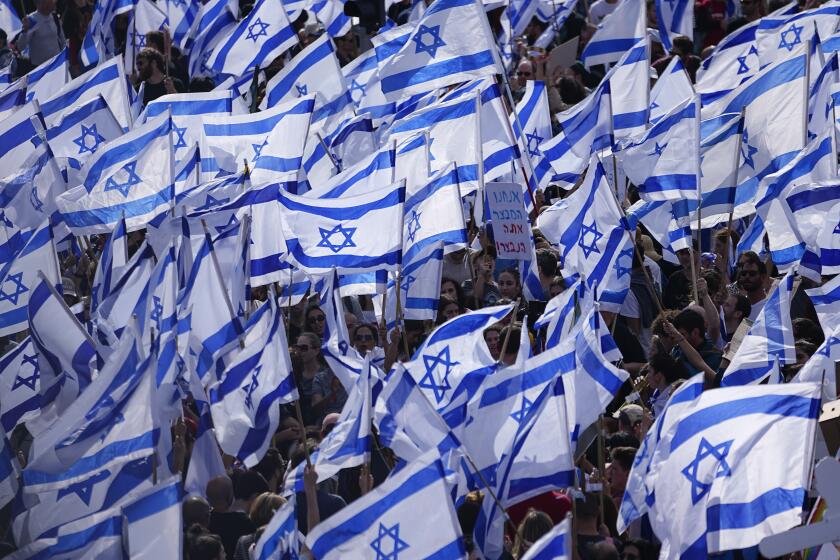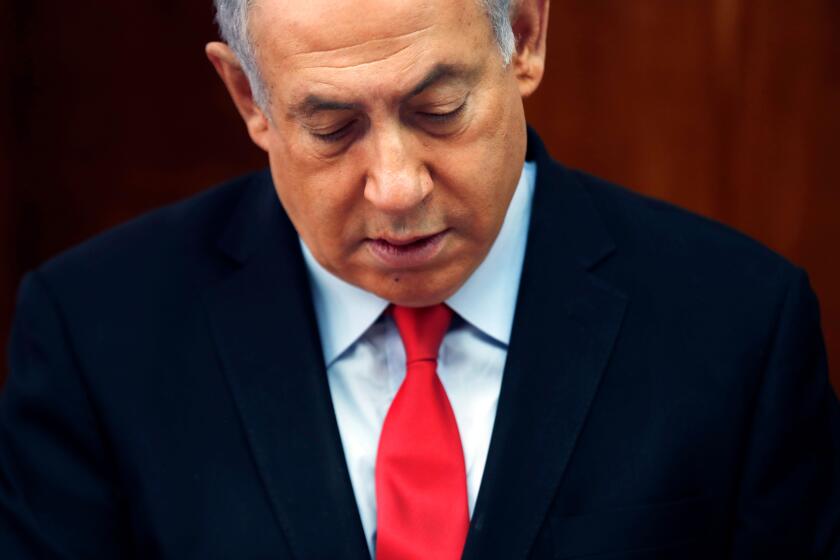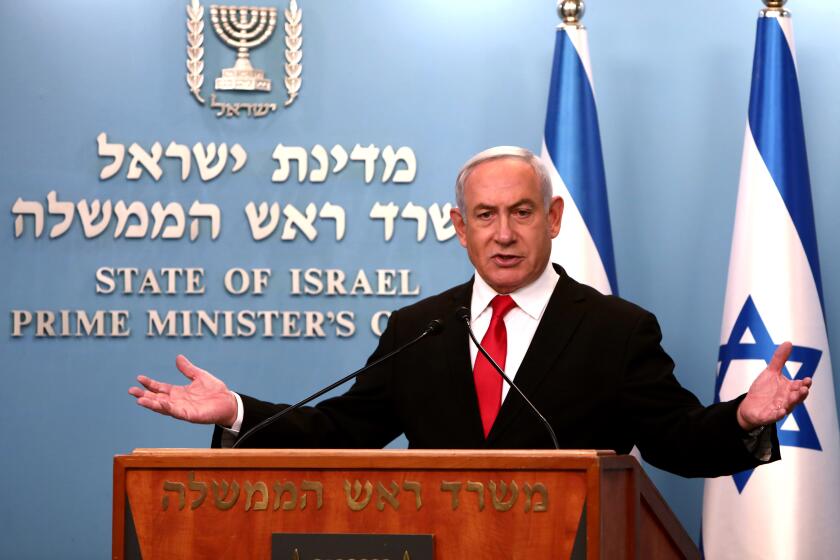Opinion: There has never been a worse crisis in Israel’s democracy, or a greater need for reform

Many Israelis, particularly among the Jewish majority, feel a sense of apocalyptic doom today. It is not only a few days before Tisha B’Av, the saddest day in the Jewish calendar, commemorating the destruction of the two holy temples in Jerusalem. It is also a time of immense political uncertainty in Israel.
The passage of the bill in the Knesset on Monday that prohibits the use of the standard of “extreme unreasonableness” in assessing government decisions is but the first of a series of proposed legislative acts that would strip away any meaningful form of judicial review.
Israel’s longest-serving prime minister is out of tricks. His attempt at a judicial revolution has left Israelis feeling disenfranchised and desperate.
The effect — and for some politicians, real intent — is to liberate the extreme right-wing government that has gained control of the legislative and executive branches in Israel from any constraint that the judiciary might seek to exercise.
Prime Minister Benjamin Netanyahu’s governing coalition has already caused grievous damage to Israel’s democratic institutions. In response, hundreds of thousands of Israelis have taken to the streets to protest for an unprecedented 29 consecutive weeks under the slogan “Dem-o-krat-yah!”
At the same time, foreign investors, high-tech executives and, in recent days, leading corporations and banks have joined the protest movement, labeling the government’s actions as dangerous to the well-being of the Israeli polity and economy. Most critically, thousands of reserve soldiers — including more than 1,000 reserve air force personnel, who are among the most prestigious of Israeli military personnel — have indicated that they will refuse to show up for duty if the government continues with its proposals.
On Israel’s 75th birthday, as on its 50th, the Jewish state is locked in an internal struggle and unsure of its direction, again under Benjamin Netanyahu’s leadership.
Never in the history of the state of Israel has there been an internal protest of this scale or duration. Nor has there ever been such a grave threat to the rule of law. And yet, it is also the case that there has never been as serious an opportunity to confront the deep structures of Israel’s democracy crisis. This requires accepting a version of Vladimir Lenin’s infamous adage: “the worse, the better.”
Had Netanyahu pulled back at the last moment and put a pause on his government’s attempted judicial revolution, it might well have served to dissipate the remarkable “people power” that has upended business as usual in Israel. The passage of the judicial law on Monday can give new energy to the protest movement and make clear that Netanyahu is fully prepared to disable democratic institutions in his country, if only to preserve his coalition and, above all, his own political life.
The collapse of the two-state solution and the threat to democracy from a new governing coalition have made Israel unrecognizable now.
Of course, the democracy crisis did not begin in November, when Netanyahu was elected yet again, after having been replaced as prime minister in the previous government. In fact, he had already begun to undermine democracy when he served as prime minister from 2009 to 2020; during that long decade, he took aim at human rights groups, political opponents, artists and writers through a series of legislative and executive acts, as well as through his formidable social media machine. He agitated for and celebrated the enshrinement of the principle of Jewish supremacy in the Nation-State Law of 2018, a quasi-constitutional Basic Law that asserted the paramount rights of Jews without mentioning democracy or equality for others.
And, in truth, the roots of the democracy crisis extend even further back to 1948, to the establishment of the state. Israel’s founding Declaration of Independence does not mention the word “democracy.” To be sure, the new state imported and implemented democratic principles and practices from different sources, but from that time there was a lack of clarity about how Israel could be both a Jewish state and one that adhered to the values of democracy, including a system of checks of balance among government authorities, an iron-clad commitment to the rule of law, rights for minorities, and equality for all citizens. The Declaration of Independence exemplifies the tension by narrating at great length the story of the Jewish people’s triumphant return to their homeland, while including a single paragraph that speaks of equal rights for all citizens.
It’s no coincidence that both Israel and the United States have faced crises of democracy. They were infected by the same agent: Donald Trump.
Netanyahu has pushed the pendulum to the side of an ethnocratic Jewish state, leaving behind any real fealty to democracy. As such, he has opened the gates to a powerful movement of protest, one that operates in the spirit of peaceful, civil disobedience.
This movement in the last several months can become a force of genuine change for years to come by demanding the restoration of the rule of law in Israel and the removal from office of Netanyahu, who is currently being tried on bribery and fraud charges.
But it should not rest content in these actions. It should push further by demanding that Israeli democracy be rooted in the principle of equality for all — no better than by passing a new Basic Law on Equality. Such a law can provide a foundation on which all who dwell in Israel — Jew and Arab alike — can claim to live in a democracy that rests on mutual respect rather than bitter hatred, constant strife and ethnic supremacy.
David N. Myers teaches Jewish history at UCLA, where he serves as director of the Luskin Center for History and Policy and the Initiative to Study Hate.
More to Read
A cure for the common opinion
Get thought-provoking perspectives with our weekly newsletter.
You may occasionally receive promotional content from the Los Angeles Times.














